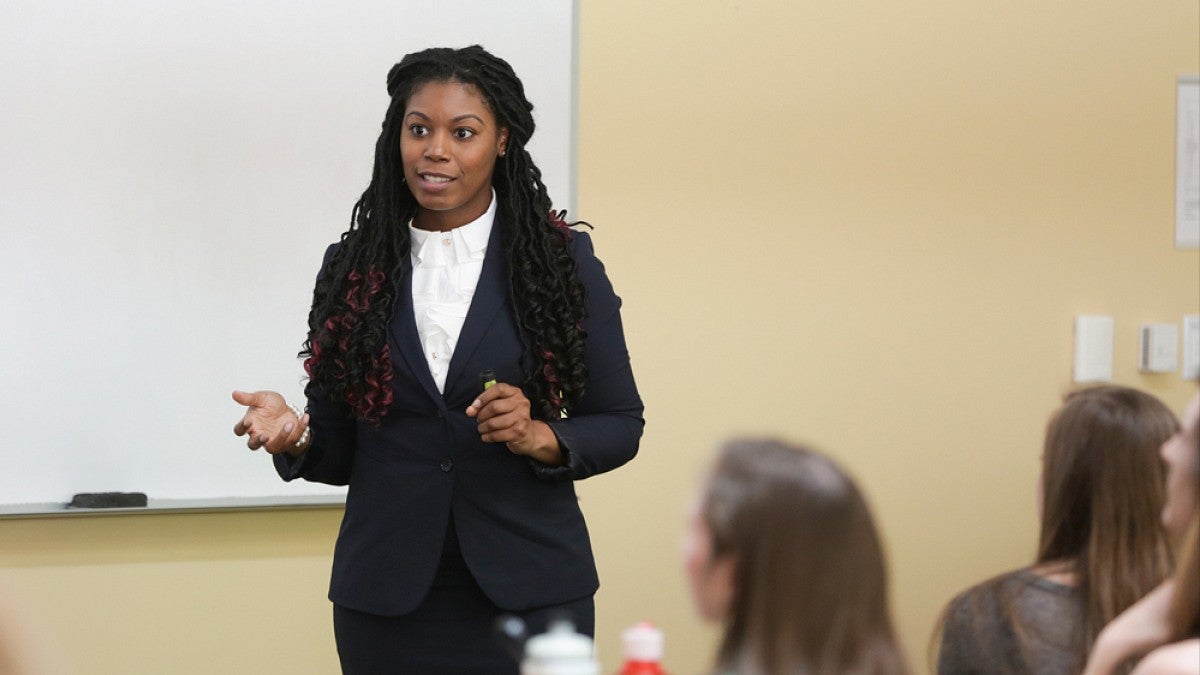Sometimes complex research questions are best addressed by multidisciplinary research teams, but launching those teams can require a bit of extra effort on the front end.
That’s where the Incubating Interdisciplinary Initiatives Award comes in.
A seed funding program supported by the Office of the Vice President for Research and Innovation, the initiative awards up to $50,000 to promising UO research teams. The program, also known as the I 3 Award, puts a priority on ideas with high potential to lead to future external funding. Applications for this year’s award are due March 5.
“The I 3 program enables our researchers to tackle challenging research questions that require multiple approaches from a variety of disciplines,” said David Conover, vice president for research and innovation. “The program aims to cultivate new collaborations that address important research projects and include researchers with excellent track records.”
Past I 3 recipients have included faculty from biology, computer science, chemistry, physics, geography and other disciplines, and teams have been funded by the National Science Foundation, the Keck Foundation, the Templeton Foundation and the National Security Agency. The university’s total investment in the program of $500,000 has resulted in nearly $6 million in external funding.
The I 3 program empowers interdisciplinary teams and helps them to navigate the challenges they face, including leaving their familiar research territory, learning to communicate in new ways with colleagues in other fields and developing novel approaches. The I 3 Award has helped several budding teams compete successfully for external funding opportunities and break new research ground.
Past recipients include a team led by former UO professor Chris Bone that received an I 3 Award for the project “Drivers of the Beetle Empire: Understanding the Coupling of Climate Change and Forest Management in Bark Beetle Outbreaks.” The team, comprising geographers, computer and political scientists, used the award to gather preliminary data, host a meeting with collaborators from other institutions and travel to Washington, D.C., to discuss the project with funding agency program officers.
This collaboration is generating new insights into the links between climate change, public policy and harmful beetle outbreaks. The team subsequently received a $1.3 million grant from the National Science Foundation to continue the work seeded by the I 3 award.
Another recipient was a group of researchers with expertise in physics, materials science and neurobiology that used its I 3 Award to take the first steps toward building better electronic implants that replace damaged parts of the body. Led by professor Richard Taylor, this team is focusing on the communication between the implant and the neurons in the body that control it.
In addition to graduate student support, the I 3 enabled them to design and fabricate new biocompatible electrodes. Their approach attracted the attention of the W.M. Keck Foundation, which awarded them a $900,000 grant to continue the work.
I 3 proposals are evaluated by a faculty committee and final funding decisions are made by the vice president for research and innovation in consultation with his executive team. Successful proposals have significant scientific or scholarly merit as well as strong potential for extramural funding.
The awards are meant to build research partnerships and should represent a new direction for the team. Allowable costs include — but are not limited to — supplies, services, travel and student support. See the program guidelines for more information.
Conover strongly encourages all eligible members of the research community wishing to start a new interdisciplinary collaboration to apply for this opportunity. Applications are due March 5 and more information can be found on the Research Development Services website.
Additional questions about the program can be sent to Vidusha Devasthali, assistant director of Research Development Services.


